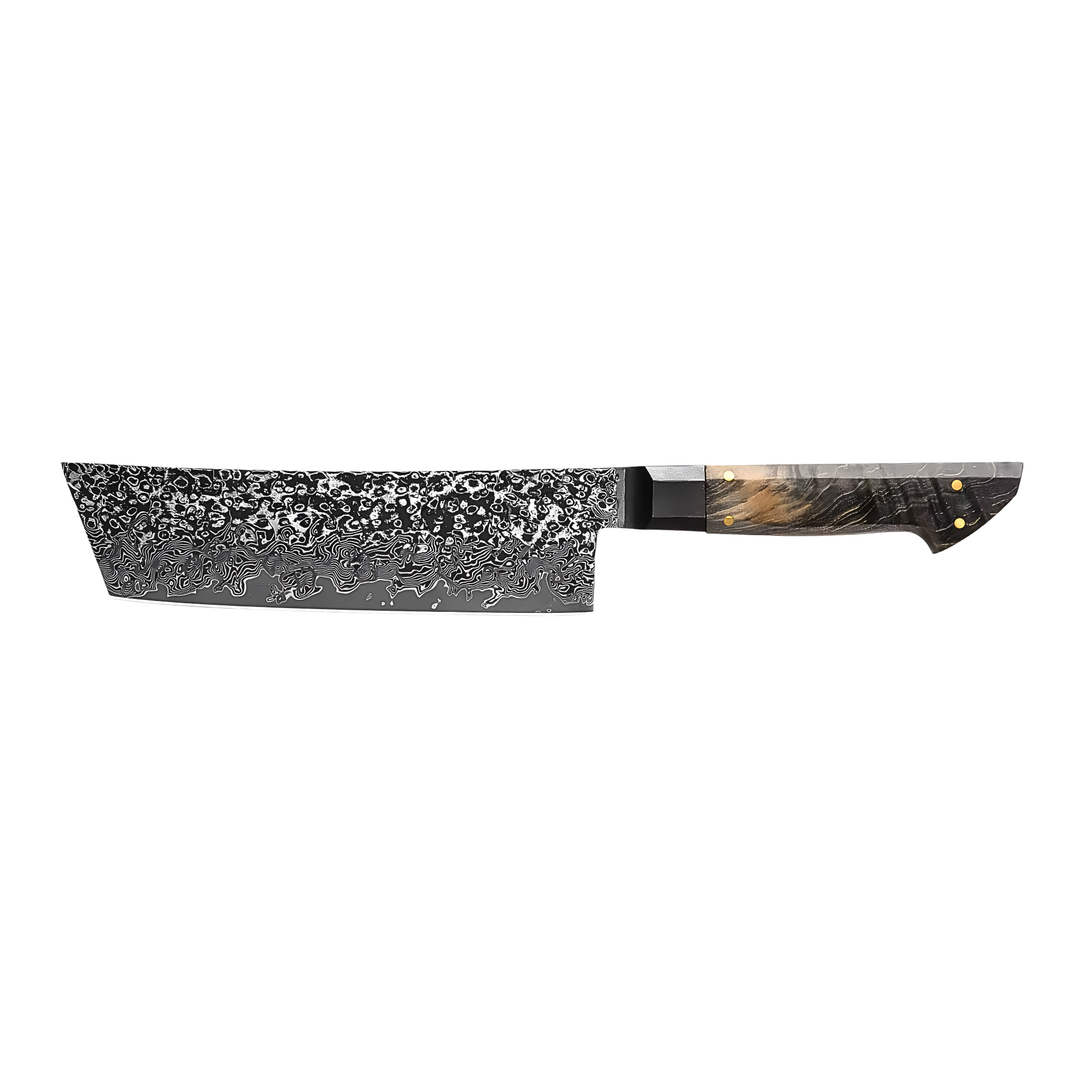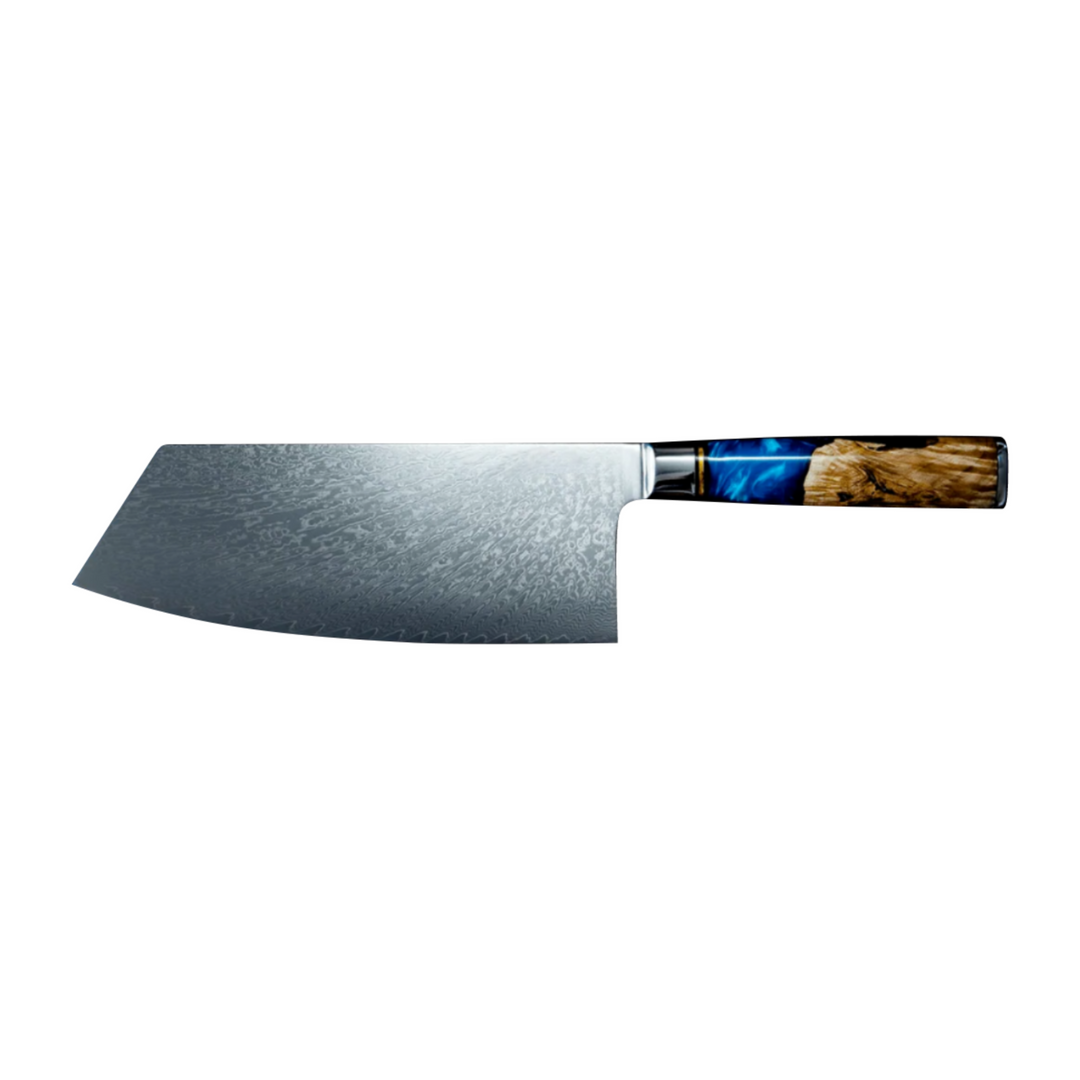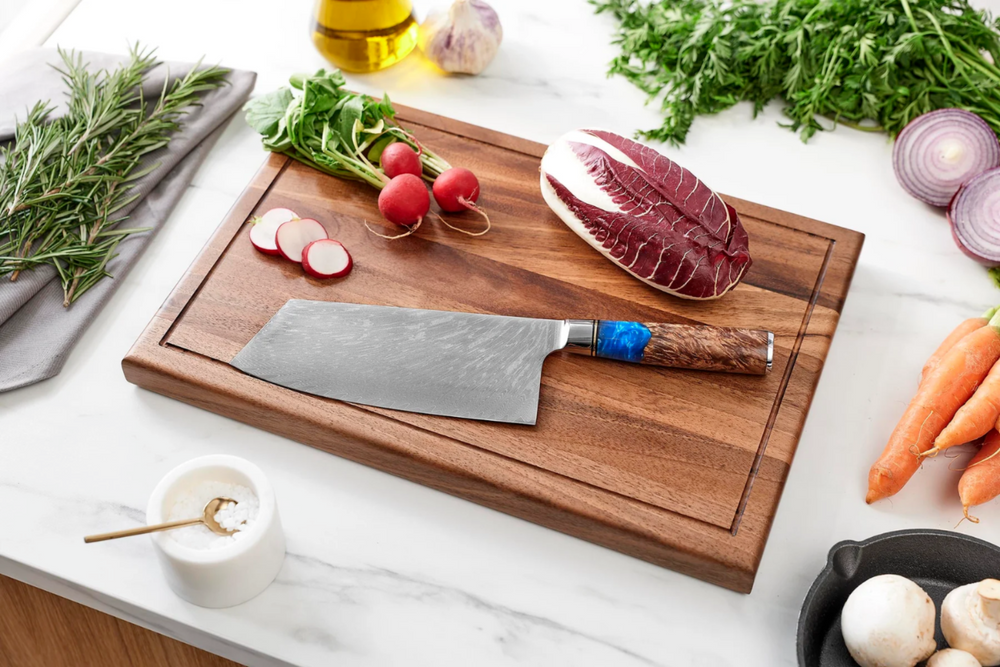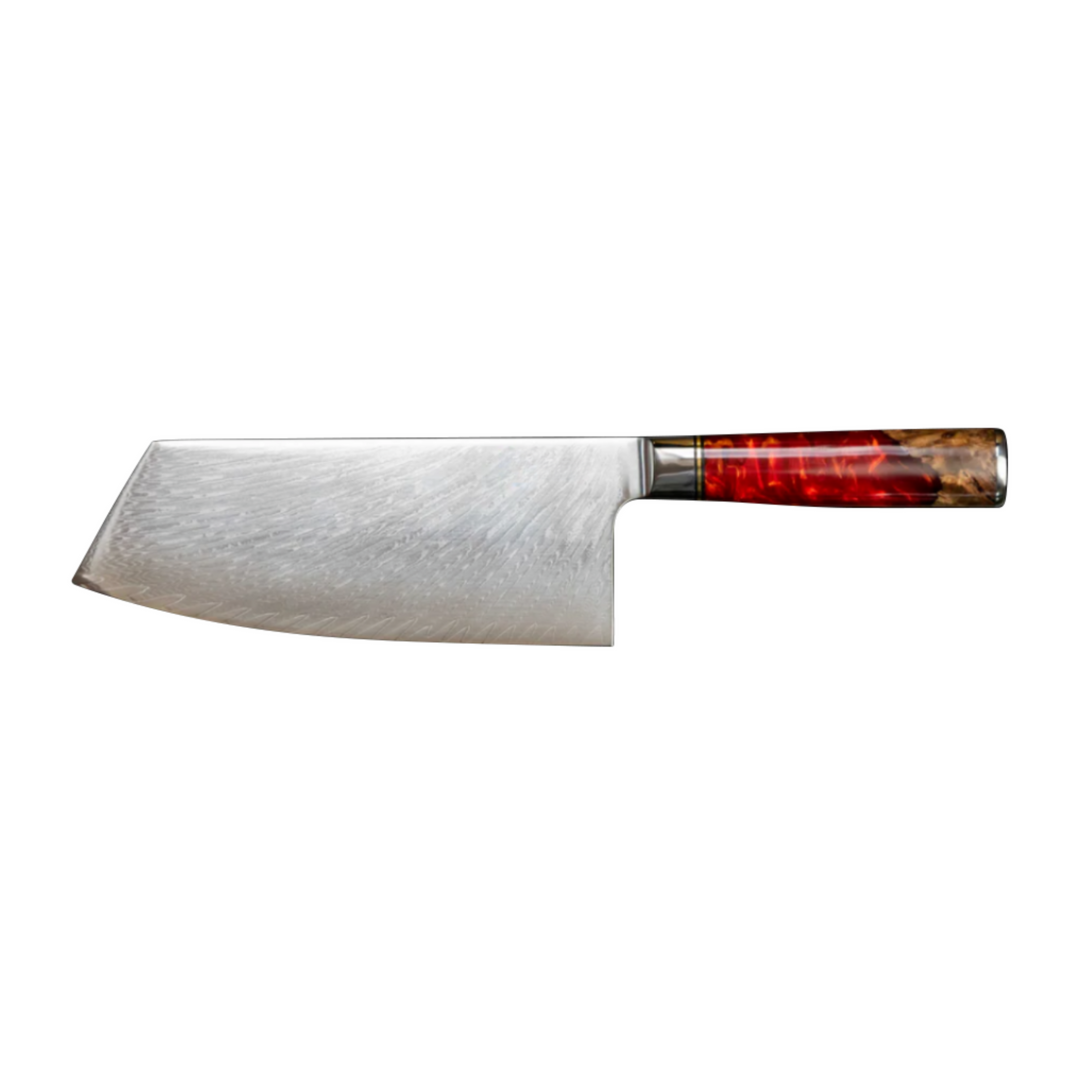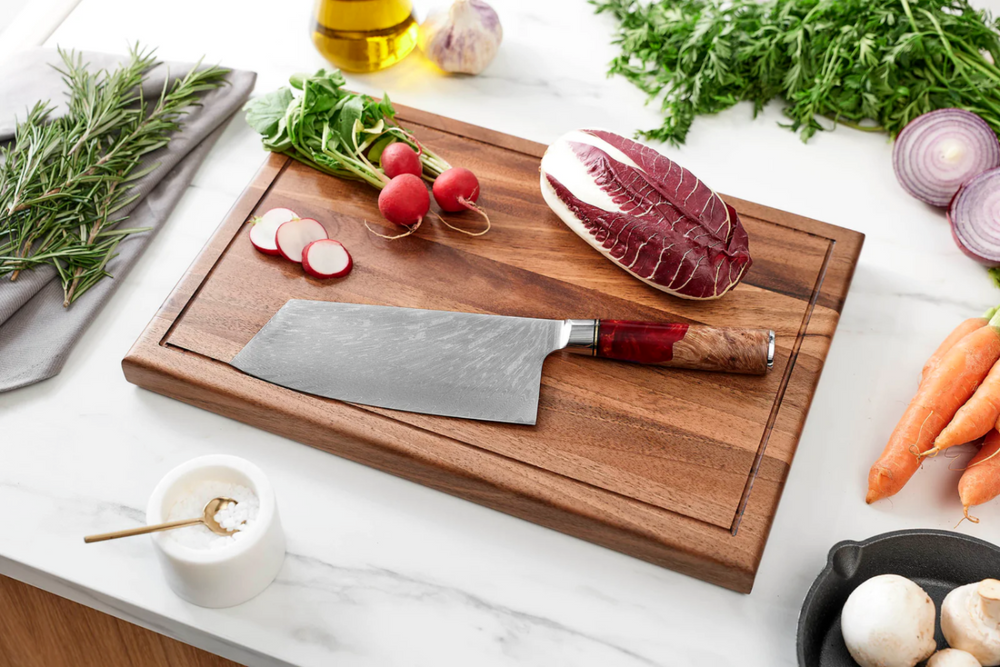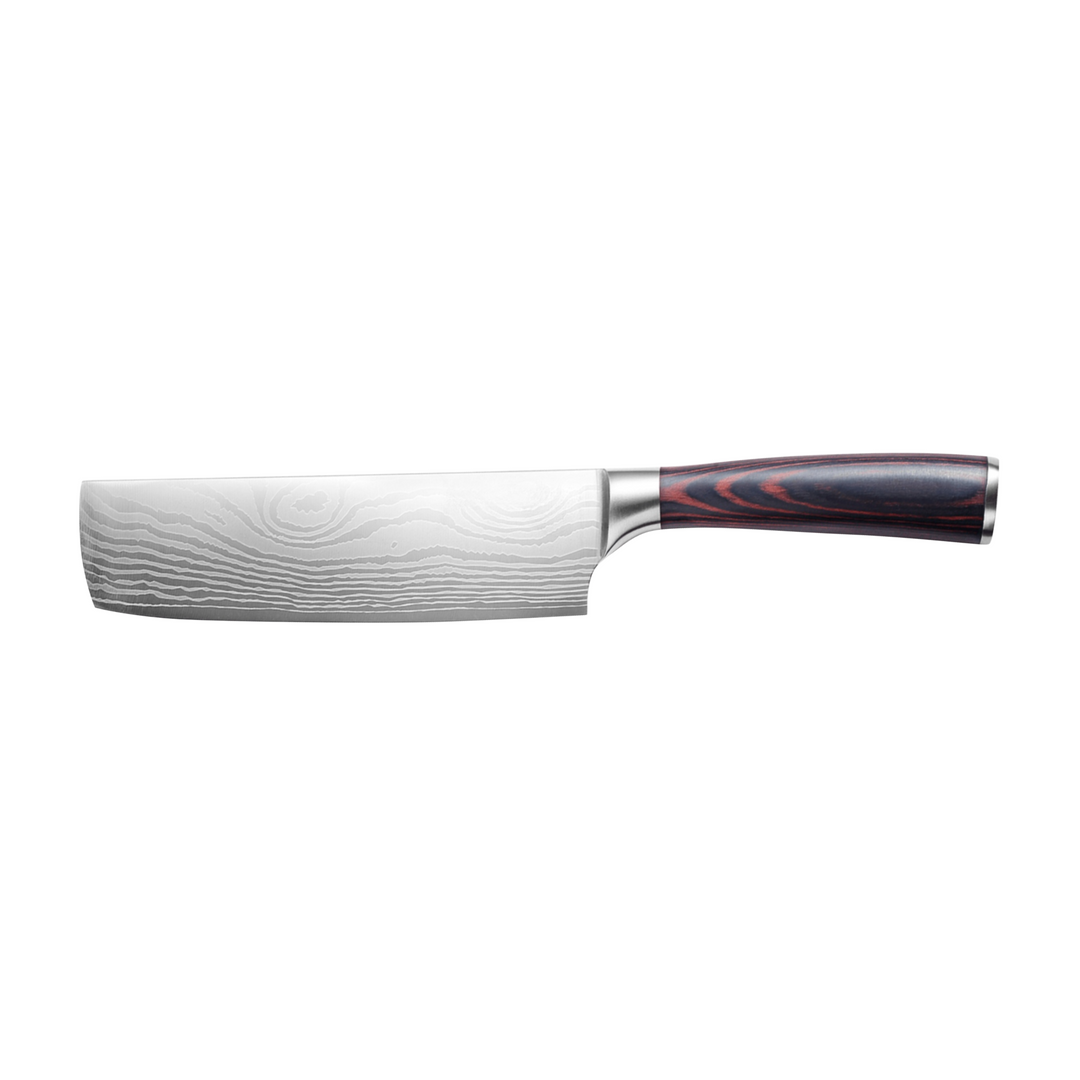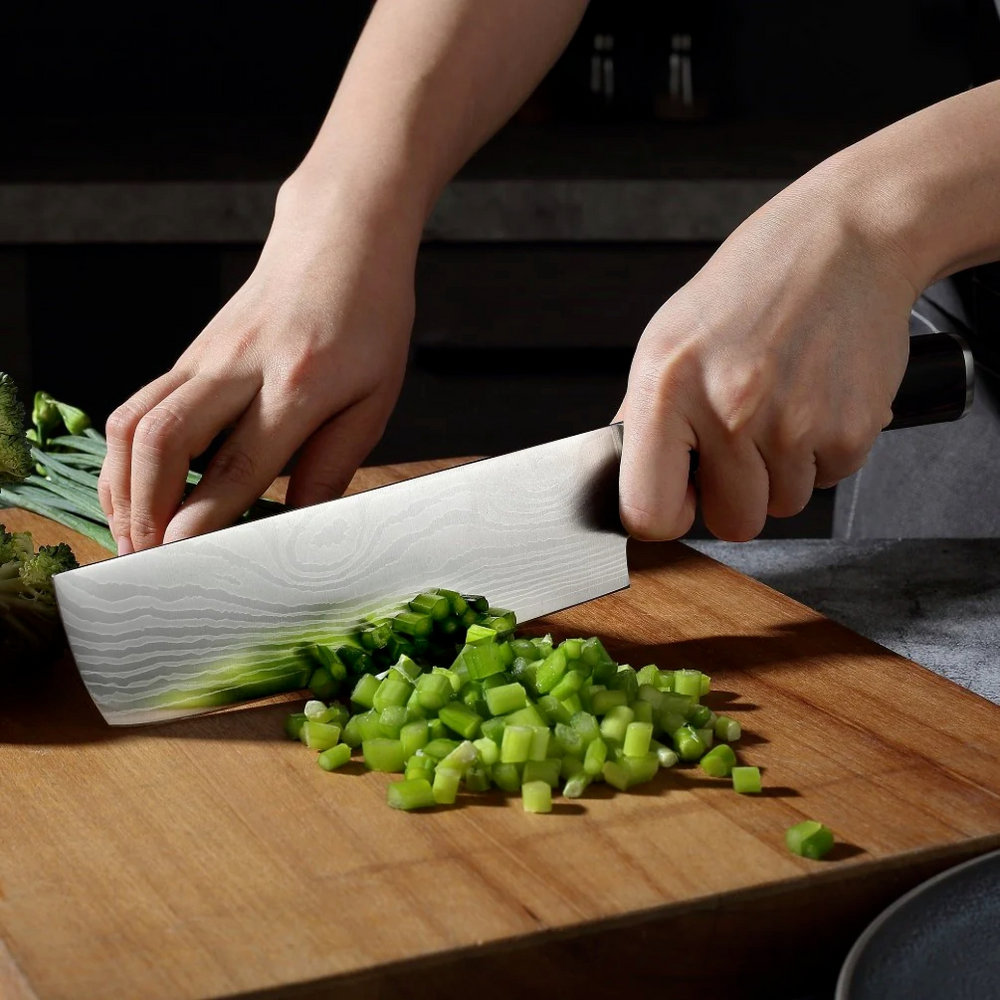BUY CLEAVER KNIVES: THE PREMIER CLASS OF KITCHEN KNIVES
Choosing the right kitchen knife isn't always straightforward. If you're considering purchasing a cleaver knife, you likely have a few questions, and we're here to provide the best answers.
Firstly, it's important to note that we exclusively offer Damascus and high-carbon Cleavers in our shop. The distinctive appearance of Damascus steel enhances the visual appeal and uniqueness of your knife. However, if you prefer a cleaver chef's knife with a high-carbon blade, rest assured that as long as high-quality steel is used, it should be just as reliable as a cleaver made of Damascus steel.
WHAT ARE CLEAVER KNIVES? AND WHY ARE THEY ALSO CALLED CHINESE CHEF'S KNIVES?
Cleaver knives, also known as Chinese chef's knives, are versatile tools used in Chinese cuisine for various cutting tasks. The term "cleaver" refers to the knife's broad blade and robust build. Due to its versatility, the cleaver is often referred to as a Chinese chef's knife. It's important to note, however, that a Nakama Cleaver should not be used to chop bones.
THE BENEFITS OF A DAMASCUS CLEAVER
Cleaver knives excel in swiftly cutting through large quantities of ingredients. With their broad blade, you can efficiently chop multiple items simultaneously, such as vegetables, without the need for repeated starts. One of the significant advantages of cleaver knives is their wide blade, providing ample surface area for cutting tasks. This makes them particularly convenient for handling medium quantities of ingredients quickly and effortlessly. Whether it's a Damascus Cleaver or a traditional one, the knife's functionality remains uncompromised, with the only difference being in appearance.
The wide blade also facilitates easy crushing of multiple cloves of garlic. The substantial weight of cleaver knives makes cutting almost effortless, as minimal pressure is required. Cooking becomes even more enjoyable, especially with a high-quality cleaver. The benefits of cleaver knives are evident, enhancing your cooking experience and efficiency. Many enthusiasts are drawn to the robust build and versatility, making the cleaver a popular choice.
CLEAVER OR SANTOKU?
Customers often inquire about whether to choose a cleaver or Santoku knife. While both originate from Asia, they have distinct characteristics.
The Santoku knife hails from Japan, whereas the cleaver originates from Chinese cuisine. While both knives serve similar functions, the choice between a cleaver and Santoku ultimately boils down to personal preference. The Santoku knife is elegant and delicate, with a smaller blade due to less steel usage. On the other hand, the cleaver is bold and visually striking in the kitchen. While it's heavier and may require some practice for precise handling, its versatility is unparalleled. We recommend testing both knives to determine which best suits your culinary needs.
CARE FOR CLEAVER KNIVES PROPERLY
Caring for cleaver knives is similar to caring for other high-quality knives. Here are some essential tips:
CLEANING A CLEAVER IN 2 STEPS
- Wash off: Rinse the knife with plain water or mild soap, especially if used with raw meat or fish.
- Dry: Prevent rust formation by thoroughly drying the knife after washing.
Sharpening:
Sharpen the cleaver using a water grinding stone, paying attention to the blade's sharpening angle. Practice on cheaper knives before sharpening high-quality ones.
Storage:
To preserve the sharpness and longevity of your chef's knife blade, proper storage is vital. We recommend using a knife block for optimal storage.
WHAT MAKES NAKAMA CLEAVER KNIVES SO SPECIAL?
Nakama cleaver knives are exceptionally durable and unique, enhancing both your cooking experience and kitchen aesthetics. To further personalize your knife, we offer engraving services, allowing you to add a name or initials to the blade or present the knife as a unique gift in a stylish gift box. Order your Nakama cleaver knife online today!






